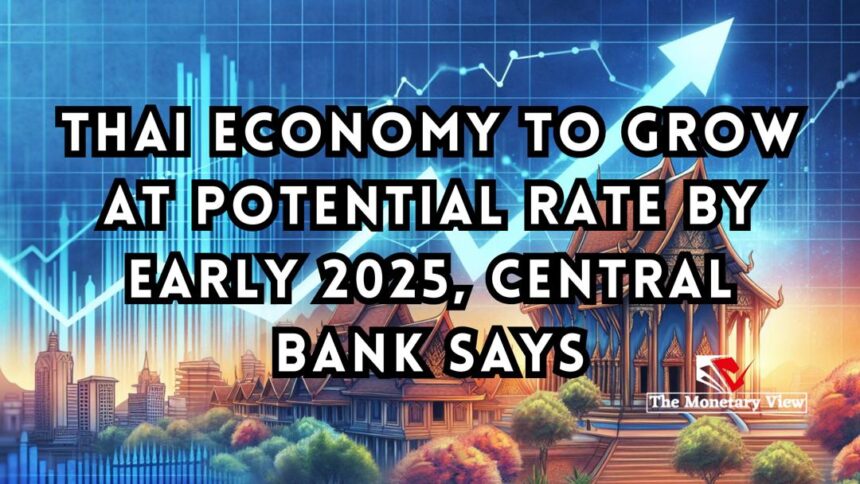Thailand’s economy is poised for a significant rebound, with the central bank forecasting a return to its potential growth rate by early 2025. This optimistic outlook is driven by a combination of domestic recovery efforts and favorable external conditions, marking a promising chapter for the Southeast Asian nation’s economic trajectory.
Economic Recovery and Resilience
The Bank of Thailand (BoT) has projected that the country’s economy will recover to its potential growth rate by early 2025. This comes after several challenging years marked by the COVID-19 pandemic, which severely impacted key sectors such as tourism and manufacturing. The central bank’s positive forecast is based on a variety of factors that signal a robust economic recovery.
Key Drivers of Growth
- Tourism Revival: Tourism, a major pillar of the Thai economy, is expected to see a significant revival. With global travel restrictions easing and increased vaccination rates, international tourists are gradually returning to Thailand. The government has also introduced several initiatives to boost domestic tourism, further supporting the sector’s recovery.
- Manufacturing and Exports: Thailand’s manufacturing sector is benefiting from a resurgence in global demand. The country’s strategic position in global supply chains, particularly in electronics and automotive industries, is expected to drive export growth. The central bank anticipates that continued investments in technology and infrastructure will enhance manufacturing capabilities and competitiveness.
- Government Stimulus and Infrastructure Projects: The Thai government has implemented various stimulus measures to support economic recovery. These include financial aid packages for businesses and individuals, as well as large-scale infrastructure projects aimed at improving transportation and digital connectivity. Such initiatives are likely to spur economic activity and create employment opportunities.
- Agricultural Sector: The agricultural sector, which employs a significant portion of the Thai workforce, is projected to grow steadily. Efforts to modernize agricultural practices and improve productivity, coupled with favorable weather conditions, are expected to boost output and income for rural communities.
Challenges and Considerations
While the outlook is optimistic, several challenges remain. The central bank has highlighted the need to address structural issues such as income inequality and workforce skills gaps. Additionally, external risks, including geopolitical tensions and fluctuations in global commodity prices, could impact Thailand’s economic performance.
Policy Measures and Strategic Initiatives
To ensure sustained growth, the Bank of Thailand and the government are focusing on several strategic initiatives:
- Monetary and Fiscal Policies: The central bank is committed to maintaining accommodative monetary policies to support economic recovery. This includes keeping interest rates low and ensuring adequate liquidity in the financial system. On the fiscal side, the government is expected to continue its expansionary policies, including targeted spending on healthcare, education, and social welfare programs.
- Digital Transformation: Embracing digital technology is a key priority for Thailand. The government is promoting digitalization across various sectors, aiming to enhance productivity and efficiency. Investments in digital infrastructure, such as expanding high-speed internet access, are crucial for supporting businesses and fostering innovation.
- Sustainable Development: Thailand is also prioritizing sustainable development as part of its long-term economic strategy. Initiatives to promote green energy, reduce carbon emissions, and conserve natural resources are being implemented to ensure that economic growth is environmentally sustainable.
Conclusion
Thailand’s economy is on a promising path to recovery, with the central bank projecting a return to its potential growth rate by early 2025. The revival of key sectors such as tourism, manufacturing, and agriculture, coupled with government stimulus measures and strategic initiatives, are driving this positive outlook. However, addressing structural challenges and mitigating external risks will be essential to ensure sustained and inclusive growth. As Thailand navigates this recovery phase, the focus on digital transformation and sustainable development will play a pivotal role in shaping the country’s economic future.







